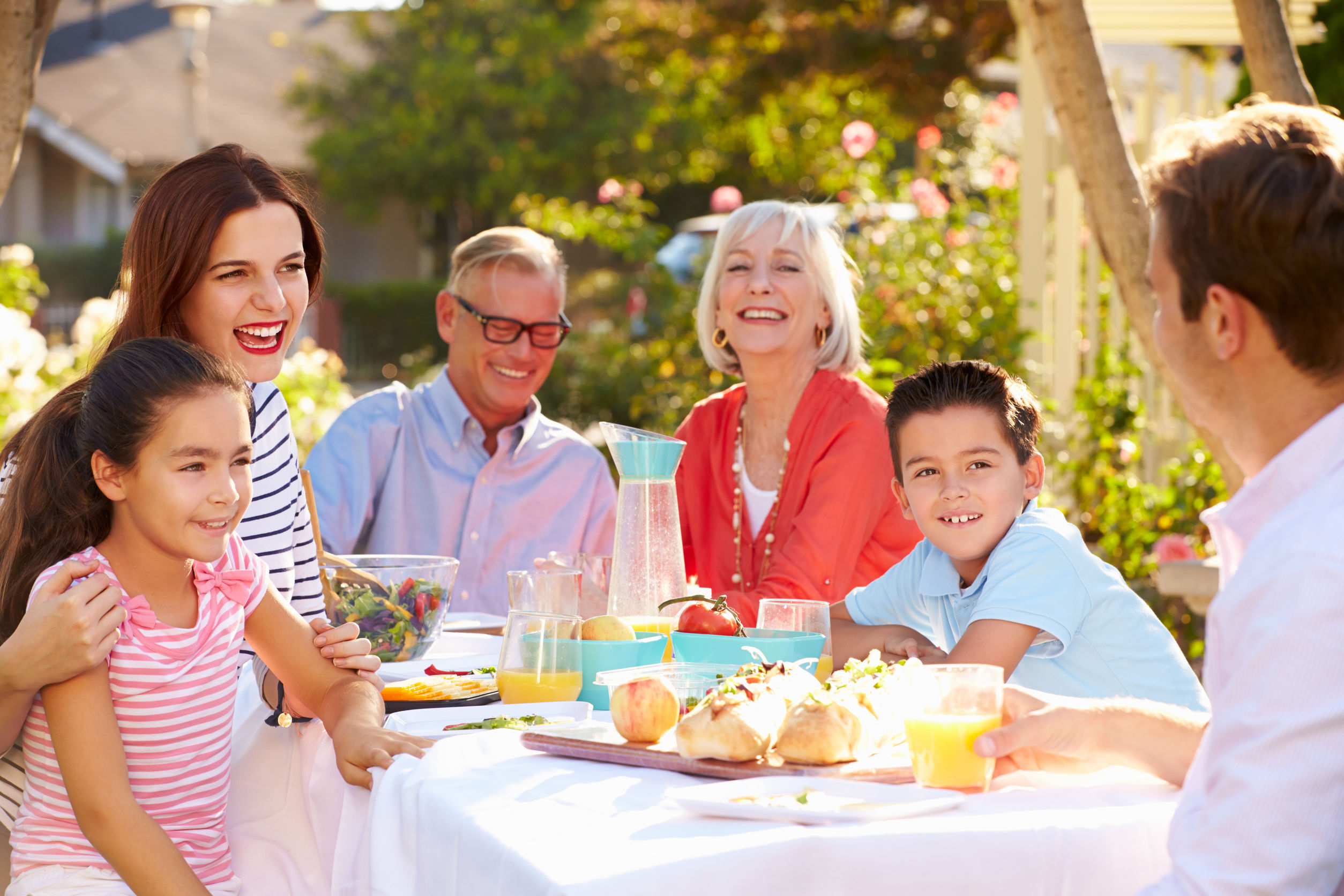The Value of Eating Together
The Value of Eating Together: how to protect this precious family time
There is overwhelming research which tells us that eating together as a family has huge benefits. Studies show that sitting down for a nightly meal together is great for the brain, the body and the spirit. Collectively as a family, and as individuals, we are better off nutritionally, physiologically and socially.
So why is it so hard to eat together? (If it was simple everyone would be doing it!)
Busy working families, a perceived lack of time and energy, there are many obvious lifestyle reasons that disconnect us. This is enough to make it all feel too hard, but the research prompts us to reconsider. There are a number of practical ways to help make the change, put things back into perspective and challenge you to start. Begin with one simple and fun way to enrich this time together or start with just one night together!
CONVERSATION
For children, dinner-time conversation boosts vocabulary. Our brains are switched on when we discuss, share, question and converse with one another. This also helps with reading, and one flow- on effect is that students are better equipped for school, and achieve better results academically.
NUTRITION
Children who eat regular family dinners also consume more fruit, vegetables, vitamins and micronutrients, and fewer fried foods and soft drinks. The nutritional benefits keep paying dividends even after the children mature. Young adults who eat regular family meals as teens are less likely to be obese and more likely to eat healthily once they live on their own.
Try sharing the Australian guide to healthy eating with your family and discuss what your family values about food.
BEHAVIOUR
Anne Fishel, author of ‘Home for Dinner: Mixing Food, Fun, and Conversation for a Happier Family and Healthier Kids’, found links between having regular family dinners and teenage behaviours. The high-risk behaviours parents fear – smoking, binge drinking, marijuana usage, violence, school problems, eating disorders and sexual activity – were lower in families who ate together. In a recent study, Fishel found children who had been victims of cyber-bullying bounced back more readily if they had regular family dinners. She also found connections between regular family dinners and good behaviours (that is, not just the absence of bad behaviours). In a New Zealand study, a higher frequency of family meals was strongly associated with positive moods in adolescents. Similarly, other researchers have shown that teens who dine regularly with their families also have a more positive view of the future, compared to their peers who don’t eat with their parents.
Try and discover more at: thefamilydinnerproject.org
INDEPENDENCE
Children can be helped to become self-sufficient by demonstrating the importance of knowing how to plan and prepare meals. Wherever possible, invite your children to help with the food preparation, baking and cooking. Allow everyone to be involved in the preparation of the dinner-time, from the setting of the table to preparing and presenting the food to the clean up afterward. Make it a family event – working as a team puts the meal on the table faster, and means everyone has some responsibility and acceptance of the outcome.
Improved eating habits come with “ownership” of a meal.
Try allocating each family member a simple task.
SOCIALLY
Miriam Weinstein, author of “The Surprising Power of Family Meals” suggests the dinner table can be the perfect environment for children to learn how to conduct conversation, observe good manners, serve others, listen, solve conflicts and make compromises.
Try this list to get you started, or consider what manners your family values.
Guidelines for manners to teach kids
GIVE THANKS
What a beautiful gift to help your children develop the habit of being grateful. During family meal times encourage each other to share at least one thing they are thankful for. It doesn’t matter how small it is! It’s amazing what happens when you start to look for (and share) things to be thankful for.
Try saying a different grace together as a family.
Here are a few to get you started: Prayers
It’s incredible what we will make time for if we are motivated! Consider eating together, not as another appointment in a busy schedule, but as a special opportunity to de-stress and spend time with those we love. We will be helping our children do better in school, be healthier and in better shape, and be less likely to abuse their bodies with drugs and alcohol.
When we eat together we build better and stronger relationships with our children. We provide space for everyone to have a sense of identity. It helps ease day-to-day conflicts, and establishes traditions and memories that can last a lifetime. When we eat together with our children, we’re nourishing more than our bodies. We’re nourishing our hearts as well.
For many more ideas and inspiration check out: Grow Ministries Pinterest
Is it time to bring the “family” back to your dinner table?
Tell us about your family dinner-times together and WIN a set of conversation cards.
Email your response to growministries@lca.org.au – we look forward to hearing about your experiences.
This article is from our family newsletter Grow together, visit our website if you would like to find out how to subscribe.

